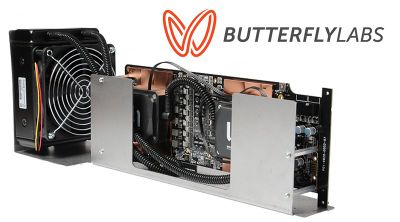Butterfly Labs

Butterfly Labs (BFL) is a company that creates Bitcoin mining hardware. One of the earliest bitcoin mining hardware manufacturers offering ASIC devices, Butterfly Labs have come under fire from bitcoin miners who have had to wait patiently due to lengthy production and delivery delays. The company is headquartered is located in Kansas, United States.
Contents
Butterfly Labs Review
The company Butterfly Labs (BFL), which is epically disgraced in front of customers, opened again and updates its website. They had to shut down as a result of a conflict with the state regulatory body, the FTC. FTC employees launched an investigation at the end of 2014.
Their verdict was that “consumers who have purchased the machines or services from Butterfly Labs and have not received their orders”. BFL has long treated clients with promises, and then finally went offline. But here they come back! Their plans have been updated on the company’s website: “We are more than ever ready to serve you, our customers. In the future, we will provide good suggestions. However, after three months of closure and strictly limited operations, we must assess the state of all aspects of our business. We ask that You be patient as we need time to restart our operations.” [1]
Customers interested in getting ASIC “Monarch” can still hope to get it. You can also apply for a refund. Requests will be processed as received. The company expects the first payments to start in late January or February. In addition, cloud mining contracts are offered to customers with a “big discount”.
Also BFL is still trying to develop the BitSafe, a hardware wallet for storing bitcoins. Although, during this time, have already appeared similar projects from competitors and best wallet Ledger.
History
ASIC-business started promising for Butterfly Labs. The company has published the specifications for its ASIC device for mining in Bitcoin Magazine last September. In accordance with the article, users can expect mining 1 W 1 gigaherz/sec. All devices will be equipped with custom ASIC chips based on 65-nm technology, which will help to reduce the power consumption.
However, within a few months things went bad. In January, a spokesman for Josh Zerlan posted an apology at the company’s forum, acknowledging the continuing delays.
“We are determined to be ready by October to make deliveries and deeply regret that we were not able to meet deadlines, — he wrote. “Our delays are the result of the complexity of the project, and so far we have overcome virtually all obstacles and entered the final phase.”
But the last stage was longer than anticipated. At the end of January, Zerlan published a forecast delivery date that came in February:”Even if the worst-case scenario happens, we plan to start deliveries around Monday 18th.”
Then, at the end of March, almost six weeks later, other news came in: the company had problems with the power needed to operate the devices.
“In order to save time, we plan to reduce the speed of hashing blocks, which is necessary to provide additional power and supply several devices to those who want to get them right now,” — said Zerlan. The next day he issued a clarification: “We are not starting delivery”.
April 15, Zerlan said that the company began to cope with the problems of hardware and software. He noted the need for reorganization of the power system, adding that it became clear that the initial specification of power consumption for devices 5 gigaherz/sec will not be successful work: “energy Consumption exceeds the 1W/GH, unfortunately, but it is much better than in excess of 40-50%”.
Finally, in April, a small number of devices began to appear. Zerlan said that the company delivered 35 devices – half developers and the media, and the other half customers.
But this did not mean that the company began mass production. Earlier this month, he wrote that the chip supplier was delaying the process. Three days later, he reported that the Butterfly Labs test lab was expecting 100 chips in Chicago on may 14.
“We’ve had some problems with the new Single card, and now we’re working on Troubleshooting and hopefully finding a solution before the end of the week,” zerlan added.
Serlan may 14, the day when he was supposed to deliver the chips, he responded to a question from the customer on the Bitcoin Talk forum who had asked about the previous delays of deliveries. [2]
“You didn’t get an answer to your question because it was so incredibly stupid that it didn’t deserve an answer,”Zerlan wrote, adding later,” which is why I don’t take you seriously… You can’t even formulate an informed thought about a simple technical side like the build.”
But others who have experience in the sphere under consideration also have questions. “I have little experience with VLSI, and one of the things we’re always worried about is power consumption and cooling,” said Charles Hoskinson, a Colorado mathematician, Director of Bitcoin Education Project, and a student studying cryptography.
Sources
External links
- Butterfly Labs Official site
- @ButteflyLabs on Twitter
- r/Bitcoin I sued BFL in Kansas jurisdiction and won
